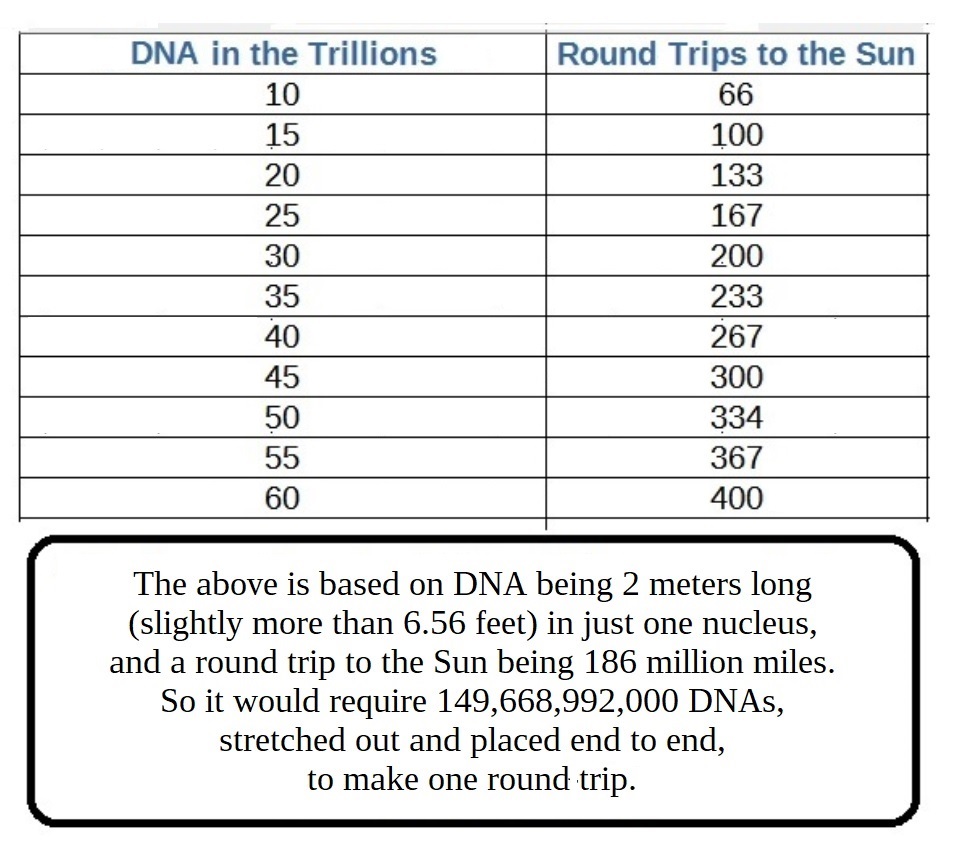“Go therefore and make disciples of all the nations…teaching them to observe all that I commanded you; and lo, I am with you always, even to the end of the age” (Matthew 28:19-20, NASB).
——————–
Contents
1) Gleanings from a Walk on a Country Road (Tom Edwards)
2) Called to Be Like Jesus (Bryan Gibson)
——————–

-1-
Gleanings from a Walk on a Country Road
Tom Edwards
NOTE: The following article (with the exception of some slight editing) was written back in early November 2003. Joe and Blanche Thompson had flown me up from Louisiana to their home in Pennsylvania because 86-year-old Joe was in very poor health and nearing death and wanted me to do his funeral, which I was honored to do. Joe was the kind of guy that easily made you feel like his best friend.
While the others were away, and just Joe and I were in his home, and he in a hospital bed in their living room, I did my funeral sermon for him so he could hear it. A few weeks later in December, Joe passed away, for which again they flew me back up.
So perhaps that gives a little more of the emotional setting for the following article of the comfort we can have in God.
——————–
While staying with the Thompsons up in Cochranville, Pennsylvania, for about a week recently, after my morning Bible studies, I would often then walk about 5 miles down a country road, where I could also spend that time in prayer, in praise, and in meditation upon God and spiritual things. Though this is good for the body and the mind, it is even more beneficial for one’s spiritual soul.
God’s handiwork is often a delight to me, a reminder of the reality of His existence, and physical blessings to be thankful for. To see the rolling and elongated hills, where cows and horses grazed on their grassy slopes; to behold the immense sky with its varietal shapes of clouds drifting by and the v-shaped patterns of geese, honking their way across the blue; to hear and watch the gurgling brook; to see the wind making tall grass undulate like endless waves of the sea; and to observe the towering clumps of woodlands in the distance and those that were near and overshadowing the road and forming “tunnels” for the pedestrian or those in vehicles to pass under, all evoked thoughts of God, the Creator. For how can we not think of the Lord when we see His various wonders abounding everywhere? (cf. Rom. 1:19-20.)
God’s reality is no less real than that of His creation. And actually, His existence is even “more real,” in the sense that He never changes nor wears out as creation does. Therefore, compared to the “durability” of God, creation itself seems to be (in a manner of speaking) gauzy, shadowy, so temporal, a fading reality that will vanish with the wearing down of time. But God, and His spiritual realm of heaven, will never become even one second older, nor diminish in quality to the slightest degree. Instead, God and heaven are eternally “new.” The radiance of heaven will never wane. Its brilliance will never become dulled. There will be no rusting, no tarnishing, no decaying, nor no perishing in that perfect place called heaven where nothing grows old, wears away, nor weakens. Corresponding to this, the Hebrew writer states in Hebrews 1:10-12: “And, ‘YOU, LORD, IN THE BEGINNING LAID THE FOUNDATION OF THE EARTH, AND THE HEAVENS ARE THE WORKS OF YOUR HANDS; THEY WILL PERISH, BUT YOU REMAIN; AND THEY ALL WILL BECOME OLD LIKE A GARMENT, AND LIKE A MANTLE YOU WILL ROLL THEM UP; LIKE A GARMENT THEY WILL ALSO BE CHANGED. BUT YOU ARE THE SAME, AND YOUR YEARS WILL NOT COME TO AN END.'” And as he says elsewhere, “Jesus Christ is the same yesterday and today and forever” (Heb. 13:8).
God’s “years” do not come to an end; but ours do — the physical part of us, that is. It is a “going the way of all the earth,” as David (1 Kings 2:2), as well as Joshua (Josh. 23:14), refers to it.
As I continued on my morning walk, taking in the sights, I soon entered a small cemetery at the corner of Faggs Manor Road and 926, with an interest in finding its oldest grave. Thinking that the first person interred in that burial ground had probably wanted to be laid to rest under a large, shady tree, I walked to what appeared to be just that: the oldest tree in the cemetery. Though there were many tombstones that had been so weathered with the corroding years of time that their inscriptions were no longer legible or only partly so, yet I found one rather large slab that was clearly readable. It lay flat and long, covering the grave site; rather than being an upright headstone. Its inscription said:
“Here lyeth the body of
Jane the relict [widow] of
James Creswell who departed
this life the 17 of August, 1749.
Aged about 85 years.”
That means that this woman was born around 1664. Below this inscription, it then read as follows:
“Death thou hast conquer’d me.
I by thy dart am slain.
But Christ hath conquer’d thee
And I shall rise again.”
How true that is. Because Jesus died, was buried, and arose from the grave, we, too, can have hope in a better resurrection (Heb. 11:35). One for which we will be changed “in a moment, in the twinkling of an eye, at the last trumpet….” When “the dead will be raised imperishable, and we will be changed” (1 Cor. 15:51-53). And it makes no difference in what year we have been laid to rest. The important thing, however, is that we are ready to meet God so that it will be a “better” resurrection. For all shall be raised from the dead and exist forever; but only those who belong to the Lord will receive, as Clarence Johnson refers to it, “the quality life.” This is what Jesus came to give, as He Himself states in John 10:10, “I came that they may have life, and have it abundantly.” And the Lord also states of this great universal resurrection in John 5:28-29, in which to those who are the saved it will be a “resurrection of life”; but to those who are the lost, it will be a “resurrection of judgment.”
Christ conquered death by His own death and resurrection (Heb. 2:14-15). Going along with this, Paul states to the Corinthians: “But now Christ has been raised from the dead, the first fruits of those who are asleep. For since by a man came death, by a man also came the resurrection of the dead. For as in Adam all die, so also in Christ all will be made alive” (1 Cor. 15:20-22). Jesus truly is “the resurrection and the life” (Jn. 11:25); and He continues in this verse by saying, “he who believes in Me will live even if he dies.”
The inscription on the tombstone also reminded me of the words of the apostle Paul in 1 Corinthians 15:55-57: “O DEATH, WHERE IS YOUR VICTORY? O DEATH, WHERE IS YOUR STING? The sting of death is sin, and the power of sin is the law; but thanks be to God, who gives us the victory through our Lord Jesus Christ.” Yes, the Christian knows that not even death can separate him or her from the love of God (cf. Rom. 8:35-39). Therefore, the child of God need “…not fear those who kill the body but are unable to kill the soul…” (Matt. 10:28); for they cannot separate one from God’s goodness and care. Ultimately, the faithful Christian will triumph even in death and arrive in a place more blissful than ever could be imagined.
Christ can take the “sting” out of death. For in Jesus, death leads to Paradise and heaven, rather than to Tartarus and hell. But whether we die with that “sting” or not is a choice that only the individual can make. God has shown His great desire toward the salvation of all by giving His Son Jesus to die for every sinner (Jn. 3:16; 1 Jn. 4:9-10; Rom. 5:6-10), but we must avail ourselves of the power in Christ’s atonement by humbly submitting to the gospel plan of salvation (Mark 16:16; Acts 2:38; Rom. 10:9,10; Acts 8:36-38; Rom. 6:3,4; Heb. 10:36-39; Rev. 2:10).
Yes, it was a good walk I had that morning; and as I spoke to God through prayer, He also “spoke” to me in these various ways: through His creation and through His words of truth that are found in the Scriptures and can instill within each of us the faith we need, along with hope, comfort, and numerous other spiritual blessings. So let us, therefore, take the time to listen to God and to lovingly respond to His gracious call, so that our walk may always be with Him in our hearts, having His word to lead our way, and our final destination being in heaven itself.
NOTE: All Scripture is from the New American Standard Bible (1995 Edition)
— Via Gospel Observer, November 9, 2003
——————–

-2-
Called to Be Like Jesus
Bryan Gibson
“He who says he abides in Him ought himself to walk just as He walked” (1 John 2:6).
“For to this you were called, because Christ also suffered for us, leaving us an example, that you follow His steps” (1 Peter 2:21).
“Imitate me, just as I also imitate Christ” (1 Corinthians 11:1).
“For I have given you an example, that you should do as I have done to you” (John 13:15).
“For whom He foreknew, He also predestined to be conformed to the image of His Son…” (Romans 8:29).
“And walk in love, as Christ also has loved us…” (Ephesians 5:2).
“Just as I have loved you, you also are to love one another” (John 13:34).
“Have this attitude in yourselves which was also in Christ Jesus” (Philippians 2:5).
“By this we know love, because He laid down His life for us. And we also ought to lay down our lives for the brethren” (1 John 3:16).
— Via Plain Words from God’s Word, April 21, 2024
——————–
The Steps That Lead to Eternal Salvation
1) Hear the gospel — for that is how faith comes (Rom. 10:17; John 20:30-31).
2) Believe in the deity of Jesus Christ, the Son of God (John 8:24; John 3:18).
3) Repent of sins. For every accountable person has sinned (Romans 3:23; Romans 3:10), which causes one to be spiritually dead (Ephesians 2:1) and separated from God (Isaiah 59:1-2; Romans 6:23). Therefore, repentance of sin is necessary (Luke 13:5; Acts 17:30). For whether the sin seems great or small, there will still be the same penalty for either (Matt. 12:36-37; 2 Cor. 5:10) — and even for a lie (Rev. 21:8).
4) Confess faith in Christ (Rom. 10:9-10; Acts 8:36-38).
5) Be baptized in water for the remission of sins (Mark 16:16; Acts 2:38; 22:16; 1 Pet. 3:21). This is the final step that puts one into Christ (Gal. 3:26-27). For from that baptism, one is then raised as a new creature (2 Cor. 5:17), having all sins forgiven and beginning a new life as a Christian (Rom. 6:3-4). For the one being baptized does so “through faith in the working of God” (Col. 2:12). In other words, believing that God will keep His word and forgive after one submits to these necessary steps. And now as a Christian, we then need to…
6) Continue in the faith by living for the Lord; for, if not, salvation can be lost (Matt. 24:13; Heb. 10:36-39; Rev. 2:10; 2 Pet. 2:20-22).
——————–
Tebeau Street
CHURCH OF CHRIST
1402 Tebeau Street, Waycross, GA 31501
Sunday: 9 a.m. Bible Classes and 10 a.m. Worship Service. Congregational Song Service: 5 p.m. for every first Sunday of the month.
Wednesday: 7 p.m. Bible Classes
evangelist/editor: Tom Edwards (912) 281-9917
Tom@ThomasTEdwards.com
https://thomastedwards.com/go/all.htm (This is a link to the older version of the Gospel Observer website, but with bulletins going back to March 4, 1990.)







